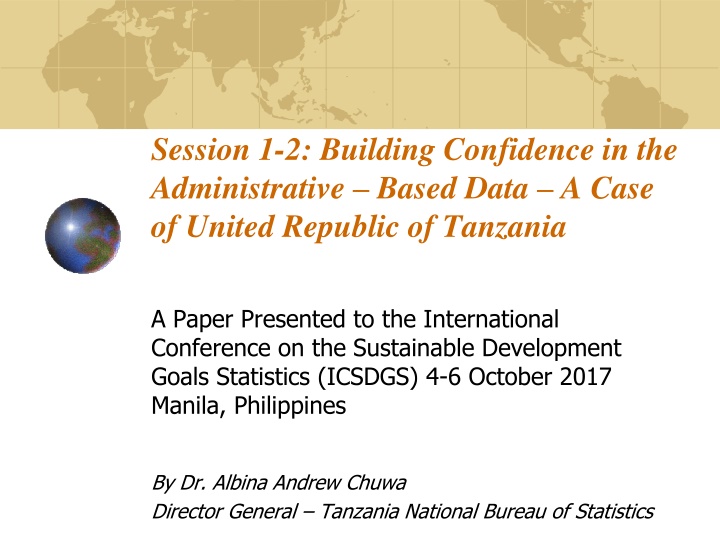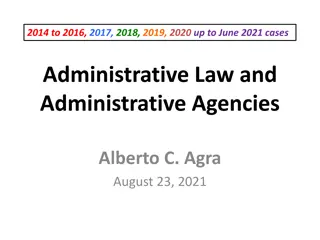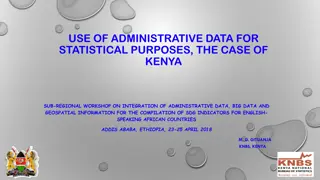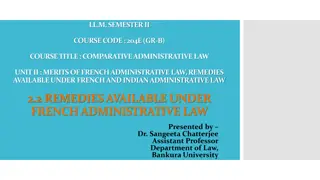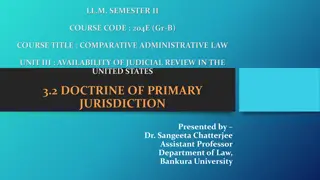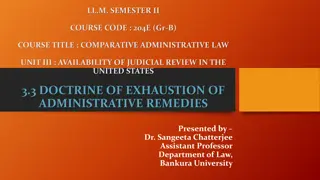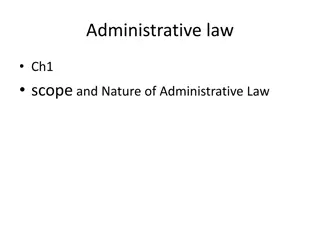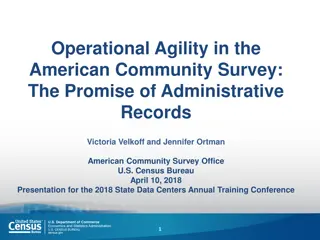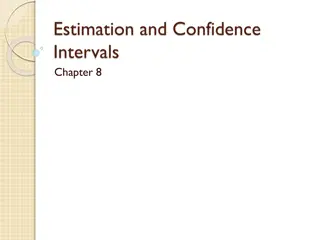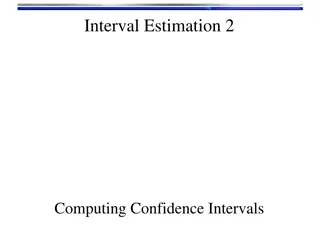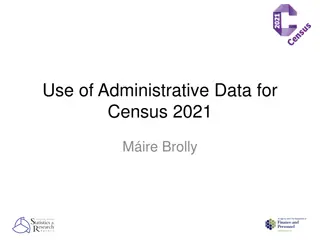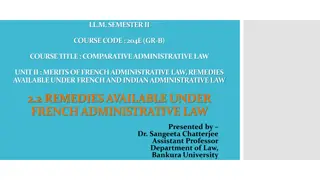Challenges and Opportunities in Building Confidence with Administrative Data
This paper discusses the challenges and opportunities in building confidence with administrative-based data, focusing on the case of the United Republic of Tanzania. It covers topics such as the background of administrative data, fundamental principles of official statistics, legal aspects, incompleteness, inaccuracy of records, and capacity challenges faced in utilizing administrative data effectively. The importance of bridging data gaps and conforming to international standards is also highlighted.
Download Presentation

Please find below an Image/Link to download the presentation.
The content on the website is provided AS IS for your information and personal use only. It may not be sold, licensed, or shared on other websites without obtaining consent from the author.If you encounter any issues during the download, it is possible that the publisher has removed the file from their server.
You are allowed to download the files provided on this website for personal or commercial use, subject to the condition that they are used lawfully. All files are the property of their respective owners.
The content on the website is provided AS IS for your information and personal use only. It may not be sold, licensed, or shared on other websites without obtaining consent from the author.
E N D
Presentation Transcript
Session 1-2: Building Confidence in the Administrative Based Data A Case of United Republic of Tanzania A Paper Presented to the International Conference on the Sustainable Development Goals Statistics (ICSDGS) 4-6 October 2017 Manila, Philippines By Dr. Albina Andrew Chuwa Director General Tanzania National Bureau of Statistics
Contents Background Information Opportunities around administrative based data bridge existing data gap responding to SDG s Indicator Framework; Challenges around administrative based Data in the developing Countries; E-Population Register in Tanzania The Forward Looking
Background Information Administrative based data is the information collected primarily for administrative purposes. Government collects this type of data for the purposes of registration, transaction and record keeping, usually during the delivery of a service to citizens. % of Population with access to safety and Clean Water
Fundamental Principles of Official Statistics Principle No. 5: Sources of Official Statistics FPO s - build confidence of administrative based data to be used to monitor performance auditing on going national, regional and global development plans. Big data, Open data ???
Challenges Building Confidence in the Administrative Based Data Administrative based data Legal aspect: Data are coming from the existing systems which lead to difficulties to retrieve data required to monitor the progress made; conformity of concepts and definitions with international standards, some of the NSO s lags behind to cope with new paradigm shifts such as big data and open data, technologies and analysis.
Challenges Building Confidence in the Administrative Based Data Incompleteness and inaccuracy of records is a serious constraints pertaining production of administrative data. Use of Paper to register information from the Ministries still common in most of developing countries
Challenges Capacity of the staff to fill-out the forms, do some quality checks, and analyze the data still ; and Lack of political will to use data for evidence policy formulation and planning in some of the developing countries e-Official Statisticians should revert the wheel to gain political will
E-Population Register In Tanzania Improvement of Administrative Based Data at LGA Graduating from paper based data into electronic data system Use of mobile technology both on and offline during data capture at household level; Routine data collection tool in Tanzania
e-PRS as a working tool Tanzania Administrative Hierarchy: National level Regional level Distric level Ward level Village level Sub-village level
Civil Register Vital Register Voters Register Social Services Education e - PRS Governan ce Health Agricultur e Revenue Security
The Way Forward and Conclusion Harnessing technologies and partners to build confidence in the use of administrative based data becomes imperative for developing countries where capacities are limited; Promoting culture of evidence based policy formulation to embrace political will is very essential; For developing countries 2nd Generation of NSDS should include a component of improving routine data system;
The Way Forward and Conclusion Custodian International Organization i.e. UN Agencies, IMF and WB to continue working with NSO s to improve concepts and definitions under administrative data. This go in line with strengthening capacity development of data producers and users in the National statistical System
END Take Away from this Presentation Mobilize All Sources of Data for Leaving no One Behind . Thank you for your kind attention
